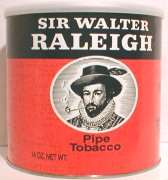 My very first job after high school was at a discount department store. After washing out in my quest for a Naval ROTC college scholarship, I knew I would have to work awhile to save money for college. So at $1.00 an hour, I entered the American work force in retail sales. The store was downtown and without a car, I caught a city bus back and forth to work everyday. For awhile I was a gopher until the manager decided I had been around long enough to start waiting on customers. I felt pretty intimidated as I knew very little about the merchandise. Questions from customers had to be referred to other more experienced clerks. I felt embarrassed at never being able to handle anything by myself.
My very first job after high school was at a discount department store. After washing out in my quest for a Naval ROTC college scholarship, I knew I would have to work awhile to save money for college. So at $1.00 an hour, I entered the American work force in retail sales. The store was downtown and without a car, I caught a city bus back and forth to work everyday. For awhile I was a gopher until the manager decided I had been around long enough to start waiting on customers. I felt pretty intimidated as I knew very little about the merchandise. Questions from customers had to be referred to other more experienced clerks. I felt embarrassed at never being able to handle anything by myself.
One day I decided to wing it a little and when a customer asked whether a particular product
carton contained a certain accessory, I looked at the box and decided it must be in there. So I said “yes” and of course was wrong, as I found out a day later when the customer complained to the manager. That was the end of my short retail sales career. The manager spoke a little more gently than Donald Trump but his message was just as final.
With some help from my father, I got a job with Brown & Williamson Tobacco Company at their
cigarette and pipe tobacco factory on Hill Street. The factory was unionized and my job was at the entry level. At $1.68 per hour the pay was better by far than store clerking. I worked on the night shift from 3:30 p.m. until 12:00. I had to hustle out of the factory when the shift ended as the last bus that night was my only way to get home.
In the production of tobacco products, whether it is pipe tobacco or cigarettes, one of the first
things they do is spray the leaf tobacco with various flavoring such as sugar, chocolate and
menthol. Then the wet tobacco leaves are spread onto a very wide moving metal mesh bed where they enter an oven to be dried. That process causes a buildup of residue on the ceiling and walls of the re-dryer that, if left unchecked becomes a fire hazard. So the residue must be removed periodically. With several re-dryers in the factory, there was a special night crew of 6-8 guys whose sole, full time job was to keep the interior of the re-dryers clean. I worked on that crew.
We grabbed a work light with extension cord, slithered under the entry onto those mesh beds
inside the oven and, lying on our backs or sides, scraped the residue from the ceiling 30 inches
above. The tool for this was a three inch wide hand scraper and a lot of elbow grease. The ovens
had been running all day at temperatures over 200 degrees and were cooled down only a little by the time our crew had to start the cleaning. It was so hot that we used air pressured hoses to blow into the ovens while we were working. After a work shift of this sweat and filth, I could have been mistaken for a coal miner as I wearily staggered onto the bus home each night.
After 13 months of this, I was motivated as never before to get educated for a career just a bit
higher up the food chain. I had saved virtually all my take home pay and calculated that I was ready financially for tuition and books needed as a day student at the University of Louisville. I said “goodbye” to Brown and Williamson and left another turning point behind.
